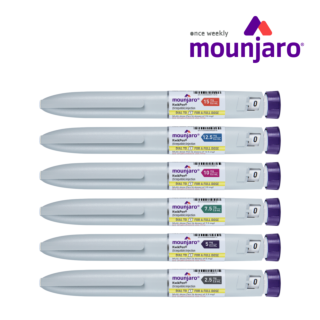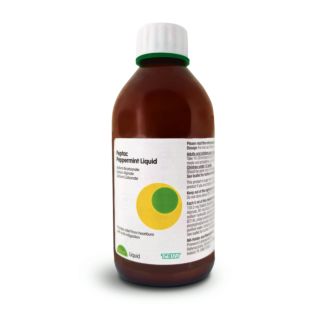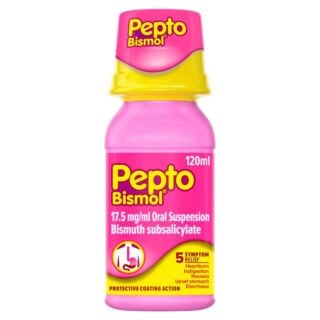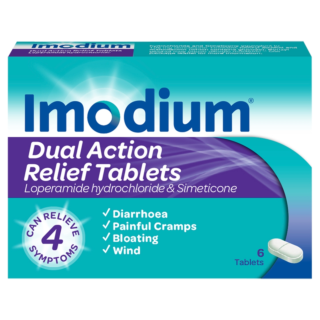
If you've ever experienced a foul-smelling burp that resembles rotten eggs, you've likely had what's known as a sulphur burp.
These unpleasant burps are caused by the presence of hydrogen sulphide gas in your digestive system. While occasional sulphur burps can be harmless, frequent or severe episodes could indicate an underlying issue.
In this article, we'll explore what causes sulphur burps, how to get rid of them quickly, and why they are often linked to medications like
Mounjaro.
What are sulphur burps?
Sulphur burps are burps that smell like rotten eggs. This happens because of a gas called hydrogen sulphide that is made in your stomach when food breaks down.
Usually, having a sulphur burp now and then is nothing to worry about. But if it happens a lot or lasts a long time, it might mean there’s a problem with your digestion.
What causes sulphur burps?
What you eat can cause sulphur burps. Foods like eggs, red meat, dairy, garlic, onions and vegetables like broccoli and cauliflower have a lot of sulphur. When your body digests these foods, it can make that rotten egg smell.
Sometimes, health problems in your stomach or intestines can cause these burps, too. Conditions like
acid reflux,
irritable bowel syndrome (IBS),
lactose intolerance, or infections like H. pylori can make sulphur burps happen more often. If you have a stomach bug or food poisoning, you might also notice these burps.
Some medicines can also cause sulphur burps. For example,
weight loss injections like
Mounjaro and
Wegovy slow down how fast your stomach empties. This means food stays in your stomach longer and can produce more gas.
Antibiotics and other medicines that change the bacteria in your gut can also cause these burps.
How you eat and drink matters, too. Eating too fast, eating too much, drinking fizzy drinks or alcohol, and swallowing air can all make burping worse.
Finally, if the balance of bacteria in your gut changes, maybe because of illness or medicine, it can cause more of this smelly gas to form.
Sulphur burps with Mounjaro, pregnancy & other causes
Mounjaro and Wegovy are prescription medicines that help manage weight loss and type 2 diabetes by slowing down the digestive process. As a result, food tends to remain in the stomach for longer, which can increase the production of foul-smelling gas.
Those taking these medications may notice an increase in sulphur burps, particularly when
doses are increased. To help minimise this
side effect, you may need to remain on a lower dose for longer (if instructed/advised by your prescriber), opt for
meals that are low in sulphur and fat, and take your medication earlier in the day.
Sulphur burps can also occur during pregnancy, as hormonal changes can slow digestion. Eating smaller, more frequent meals, steering clear of foods that irritate your stomach, and engaging in gentle exercise may help to reduce these symptoms.

How to get rid of sulphur burps quickly
If you’re keen to get rid of sulphur burps quickly, increasing your water intake is a simple yet effective approach. Staying well-hydrated helps to flush your system and can reduce the build-up of gas in your stomach.
For extra relief, sipping on peppermint or ginger tea can have a soothing effect on your digestive tract, promoting smoother digestion and easing discomfort.

Out of Stock
Beyond simply drinking more fluids, several home remedies may help. For example, dissolving a small amount of baking soda in water can help neutralise excess stomach acid, while a diluted solution of apple cider vinegar might help restore your stomach’s natural acidity balance.
Activated charcoal tablets are another option, as they can help absorb excess gas and reduce unpleasant odours. A teaspoon of honey may also provide gentle relief by coating and calming your stomach lining.
While over-the-counter medicines are available to address these symptoms, it’s always best to consult your doctor or pharmacist before starting any new treatment.
Antacids can help to lower stomach acid levels that contribute to burping, and probiotics support a healthy balance of beneficial gut bacteria.
Digestive enzymes, on the other hand, assist in breaking down food more efficiently, reducing the likelihood of gas.
Products such as
Pepto-Bismol may also help to mask the rotten egg smell associated with sulphur burps, while simethicone can help to break up gas bubbles in your digestive tract.
If you find that dairy or pulses trigger your symptoms, there are specialised supplements available to help you digest these foods more comfortably.
Finally, adjusting your eating habits can make a big difference. Opting for several smaller meals throughout the day, rather than a few large ones, can ease the burden on your digestive system.
Steering clear of fizzy drinks and alcohol, as well as avoiding lying down immediately after meals, can further help to minimise episodes of sulphur burping.
How to stop sulphur burps from coming back
To help prevent sulphur burps, it’s a good idea to follow a balanced diet and try to limit foods that are particularly high in sulphur.
Increasing your intake of fibre and including probiotics in your daily routine can support a healthier gut environment. If you suspect an infection is contributing to your symptoms, always speak to your GP for advice.
It’s also wise to avoid overeating and to steer clear of late-night meals, as large or late dinners can slow down your digestion and lead to increased gas production.
Make sure to drink plenty of water throughout the day and stay active with regular exercise, both of which can help keep your digestive system functioning smoothly.
Additionally, practising relaxation techniques to manage stress is beneficial, as stress can slow your stomach’s activity and contribute to digestive discomfort.
Can other people smell sulphur burps?
Yes, sulphur burps smell very strong, so others may notice them. This can be embarrassing, but there are ways to manage and reduce them as we'll outline below.
Summary table: sulphur burps at a glance
| Cause/trigger |
How to manage/prevent |
| Sulphur-rich foods |
Reduce intake, try an elimination diet |
| Mounjaro/Wegovy (slow digestion) |
Smaller meals, probiotics and avoid triggers |
| Gut bacteria imbalance |
Probiotics, consult your GP |
| Lactose intolerance |
Avoid dairy |
| Fast eating, overeating |
Eat slowly, smaller meals |
| Carbonated/sugary drinks |
Limit intake |
When to see your GP with sulphur burps
If sulphur burps happen a lot, don’t go away, or come with bad stomach pain, vomiting,
diarrhoea, or losing weight without trying, you should book in to see your doctor. These could be signs of a more serious problem.

Sulphur burps can be pretty uncomfortable and a bit embarrassing, but figuring out what’s causing them is the first step to feeling better. Whether it’s something you ate, medications like
Mounjaro, or digestive issues, there are definitely ways to cut down on how often and how intensely they happen.
If you’re dealing with sulphur burps along with symptoms like
diarrhoea,
vomiting, or ongoing stomach pain—especially if you’re using weight-loss injections—make sure to check in with your prescriber.
Looking for some relief? Speak with our pharmacists or take a look at our sulphur burp remedies below.
 If you've ever experienced a foul-smelling burp that resembles rotten eggs, you've likely had what's known as a sulphur burp.
These unpleasant burps are caused by the presence of hydrogen sulphide gas in your digestive system. While occasional sulphur burps can be harmless, frequent or severe episodes could indicate an underlying issue.
In this article, we'll explore what causes sulphur burps, how to get rid of them quickly, and why they are often linked to medications like Mounjaro.
If you've ever experienced a foul-smelling burp that resembles rotten eggs, you've likely had what's known as a sulphur burp.
These unpleasant burps are caused by the presence of hydrogen sulphide gas in your digestive system. While occasional sulphur burps can be harmless, frequent or severe episodes could indicate an underlying issue.
In this article, we'll explore what causes sulphur burps, how to get rid of them quickly, and why they are often linked to medications like Mounjaro.

 Sulphur burps can be pretty uncomfortable and a bit embarrassing, but figuring out what’s causing them is the first step to feeling better. Whether it’s something you ate, medications like Mounjaro, or digestive issues, there are definitely ways to cut down on how often and how intensely they happen.
If you’re dealing with sulphur burps along with symptoms like diarrhoea, vomiting, or ongoing stomach pain—especially if you’re using weight-loss injections—make sure to check in with your prescriber.
Looking for some relief? Speak with our pharmacists or take a look at our sulphur burp remedies below.
Sulphur burps can be pretty uncomfortable and a bit embarrassing, but figuring out what’s causing them is the first step to feeling better. Whether it’s something you ate, medications like Mounjaro, or digestive issues, there are definitely ways to cut down on how often and how intensely they happen.
If you’re dealing with sulphur burps along with symptoms like diarrhoea, vomiting, or ongoing stomach pain—especially if you’re using weight-loss injections—make sure to check in with your prescriber.
Looking for some relief? Speak with our pharmacists or take a look at our sulphur burp remedies below.















